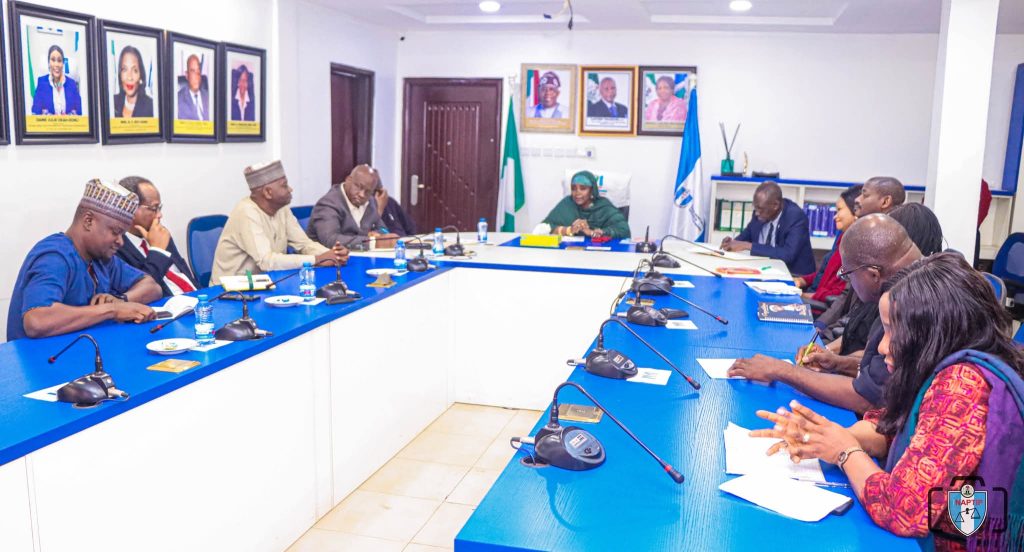In a major step toward dismantling trafficking networks operating through Nigeria’s vast road transport system, the National Agency for the Prohibition of Trafficking in Persons (NAPTIP) has entered into a strategic partnership with the Nigerian Association of Road Transport Owners (NARTO).
The alliance was formalized during a courtesy visit by NARTO’s leadership, led by its National President, Alhaji Yusuf Lawal Othman, to the Director General of NAPTIP, Binta Adamu Bello at the agency’s headquarters in Abuja.
NAPTIP Partners MeCAHT, EXIST on Human Trafficking
NARTO, the umbrella body for commercial vehicle owners involved in the transport of passengers, petroleum products, and general cargo across the country, pledged to work closely with NAPTIP in combating human trafficking along major transportation corridors.
Alhaji Othman highlighted growing concerns about the use of Nigeria’s transport system for trafficking and other illicit activities.
“Credible intelligence and field observations have revealed an alarming convergence between human trafficking and other criminal vices within our transport corridors,” he stated. “NARTO is fully committed to being part of the solution through a strategic, results-oriented partnership with NAPTIP.”
FRSC Kano Honors NAN, NUJ, NARTO, Others for Contributions
He further proposed collaboration in the areas of information sharing, joint intelligence gathering, coordinated field operations, and grassroots public sensitization across motor parks and highways.
Responding, NAPTIP Director General Binta Adamu Bello welcomed the initiative, describing the collaboration as “timely, critical, and long overdue.”
“This partnership opens a new chapter in our fight against human trafficking. With NARTO’s nationwide reach and logistical capacity, we can close the gaps that traffickers exploit,” she said.
She assured NARTO of NAPTIP’s full commitment to ensuring a robust and results-driven working relationship.
The partnership is expected to yield coordinated anti-trafficking campaigns at transit points, training for transport workers, and rapid reporting channels to track and intercept suspected trafficking operations.
This development comes as NAPTIP continues to expand its multi-sectoral engagement model, involving civil society, transport unions, traditional institutions, and private sector actors in the nationwide anti-trafficking response.





